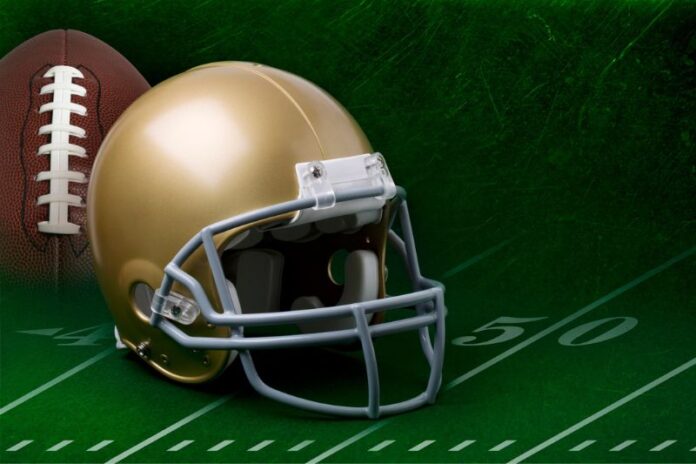The phrase “fighting Irish” did not originate with Notre Dame’s football team, but with the Irish immigrant soldiers who fought for the Union during the Civil War. It was Confederate Gen. Robert E. Lee himself who is said to have coined the term, a testament to the bravery and effectiveness of the so-called “Irish brigades” that helped save their new Nation.
When Irish statesman Eamon de Valera came to America in 1919 to generate support for the Irish cause, he naturally came first to Boston. There he told a huge rally in Fenway Park what the phrase meant. “What we actually mean when we talk about it,” he explained, “is an indomitable spirit, a commitment, never tentative, always fully committed, to life itself… that’s really the spirit of ‘the Fighting Irish.'”
Ireland’s magic is plain to anyone who visits the Emerald Isle, but it is hardly the country’s physical beauty alone that furnishes the magic. Since time immemorial the Irish have been gifted at community — at nurturing and preserving communal celebration of tradition, music, humor, literature and memory.
They’ve been gifted as well at transplanting community to the places to which painful circumstances have forced them to emigrate — and then nurturing and preserving community in those places.
America has been a blessed beneficiary of this Irish gift, and Boston has perhaps been the most blessed of the blessed. Those who have interacted with Boston — as students, as patients or as transplants themselves — have reason to know that the phrase should be “the giving Irish.” The imprint of Irish Americans on Massachusetts is vast and deep. But you can see and breathe it all over Boston. There is a great deal that is generous and good here, and so much of it has an Irish American aspect.
A walking illustration of this is John Connors Jr., the justly iconic philanthropist who has done as much good for Bostonians over the last two generations as anyone, and who at 81 continues to do it. The grandson of Irish immigrants, Connors grew up in a lower-middle-class home in a humble Boston neighborhood and was the first in his family to go to college.
What the Connors family lacked in discretionary income it possessed in values passed down from forebears. Connors sold peanuts at Fenway, drove a cab, served in the Army National Guard and supported his sister and her children when his sister’s husband abandoned them.
A self-professed “peddler,” Connors went on to found the advertising agency Hill Holliday, which under his leadership became a behemoth. There isn’t much in Boston that hasn’t benefited from Connors’ relentless philanthropy — hospitals, shelters and treatment centers, colleges, camps for underprivileged kids, improved education for inner-city children and, of course, an uncountable number of families who have been quietly, or anonymously, uplifted by Connors’ acts of kindness.
Uncomfortable talking about what he had done, Connors, who has been to Ireland 55 times, makes clear that he has been moved and motivated by his Irish heritage. His generosity to those who are disadvantaged and discriminated against is a visceral reaction to the Irish American experience of his grandparents’ and parents’ generations.
In Boston later this month, the Irish Cultural Center of Greater Boston, a collaboration of the Irish government and local Irish Americans, will gather to ensure that the appreciation of Irish heritage that meant much to the likes of Jack Connors and so many others stays vibrant for years to come. It will give an award named after the late U.S. Rep. Brian Donnelly, spearhead of a visa program that strengthened the America-Ireland relationship, to longtime CEO of the New England Council Jim Brett.
Those in attendance will honor what center head Jerry McDermott describes as the core Irish legacy that he hopes will always flourish here: “the yearning to make things better for the next generation.” It will be yet another one of those occasions when Irish Americans demonstrate that, at the end of the day, it is all about the giving.































